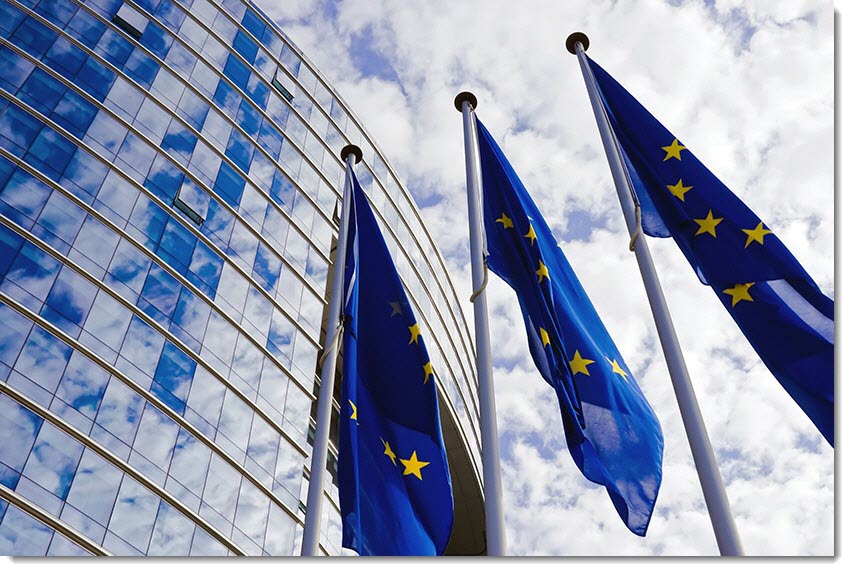
06/12/2024
EU Insight 6 December 2024
Brussels, 6 December 2024
FRENCH GOVERNMENT OUSTED BY THE PARLIAMENT OVER BUDGET IMPASSE
France’s Prime Minister Michel Barner faced a no-confidence vote in the National Assembly, leading to the fall of his government and his resignation. Less than three months after its formation, Barnier’s government was ousted by both the far-right National Rally (RN) and the left-wing coalition of the New Popular Front (NFP), following its attempt to pass a controversial ridden Budget for 2025. Not only does this episode make Michel Barnier the shortest lived prime minister of France’s fifth Republic, but it also plunges the country deeper into political disarray. In response French President Emmanuel Macron reaffirmed that he would not resign, and instead would look to appoint a new prime minister in the coming days. To read more about the implications of France’s political turmoil, find a blogpost from our Senior Advisor Yves Bertoncini here.
EU CLOSES MERCOSUR DEAL AMIDST FRENCH POLITICAL TURMOIL
The EU and the Mercosur countries concluded this week negotiations on a free trade agreement, 25 years after discussions first started between the two blocs. The EU-Mercosur trade deal, liberalises economic relations between the EU and several Latin American countries, namely Argentina, Brazil, Paraguay, and Uruguay, creating a market for more than 700 million people, one of the largest free-trade areas in the world. The trade agreement, which still needs to be ratified, strengthens the economic and political ties between the two blocs, and marks a symbolic step against ever increasing protectionism across the globe. However, for years the deal has faced controversy, being strongly opposed by EU Member States such as France farmers and environmental non-governmental organisations, due to its potential implications on the agri-food sector and sustainability concerns.
COUNCIL ADOPTS CYBERSECURITY PACKAGE
As part of its commitment to strengthening Europe’s preparedness and responsiveness to cyber threats, the Council finalized the adoption of the EU’s cyber security package. The initiative aims to strengthen the EU’s defence and resilience against cyber threats. The package includes establishment of a cyber security alert system and an emergency mechanism, under the cyber solidarity act. These aim to enhance the detection of and coordinated response against cyber-attacks. Additionally, the package amends the 2019 cyber security act, enabling the future adoption of European certification schemes for managed security services. The Council’s adoption now paves the way for the package’s publication in the EU’s Official Journal, and subsequent entry into force.
COMMISSION UNVEILS FUNDING FOR CLEAN-TECH, RENEWABLE HYDROGEN & EV BATTERIES
As part of its efforts to support the net-zero transition and EU competitiveness, the Commission unveiled €4.6 billion in funding to projects aimed at strengthening clean energy and decarbonised manufacturing across Europe. More specifically, the funding is distributed across clean-tech and net-zero technologies projects (€2.4 billion), renewable hydrogen production (€1.2 billion) and electric vehicle battery cell development (€1.0 billion). All initiatives are financed by the EU’s Innovation Fund, backed by revenues stemming from the EU Emission Trading System. In a similar move, the Commission partnered with the European Investment Bank aiming to stimulate investments in the EU’s battery manufacturing sector through a €200 million loan guarantee.
COMMISSION LAUNCHED THE EUROPEAN BOARD ON AGRICULTURE AND FOOD
The Commission established the European Board on Agriculture and Food (EBAF) resulting from the Strategic Dialogue on the Future of Agriculture, a dialogue which followed from the farmer protests throughout Europe from earlier this year. This new consultative body should support the Commission in the implementation of the Dialogue’s recommendations by providing advice on policy initiatives, including on the upcoming New Vision for Agriculture and Food. The Board will be composed of maximum 30 organizations representing the farming community, food supply chain actors, and civil society. While welcoming the Board’s formation, several Members of the European Parliament, underlined the importance of discussing all aspects of the Strategic Dialogue and warned against cherry-picking recommendations.
COMING UP NEXT WEEK
- 9-10 December: Agriculture and Fisheries Council. On the agenda: fishing opportunities, bioeconomy, farmer-focused post-2027 common agricultural policy.
- 9 December: Eurogroup. On the agenda: international economic dialogue with the UK, IMF view on euro area policies, Member States draft budgetary plans.
- 10 December: Economic and Financial Affairs Council. On the agenda: energy taxation, economic governance framework, RRF, Russia’s aggression against Ukraine.
- 11 December: College of Commissioners. On the agenda: hybrid threats, strengthening security at EU’s external borders, EU-US relations.
- 12-13 December: Justice and Home Affairs Council. On the agenda: Schengen, IT systems for law enforcement, fighting child sexual abuse, insolvency law.
Tuomas Tierala, Managing Partner Brussels, Kreab
_________________________________________________________
Kreab • Tel: +32 2 737 6900 • tuomas.tierala@kreab.com • www.kreab.com/brussels • X: @KreabEU • LinkedIn: Kreab Worldwide
